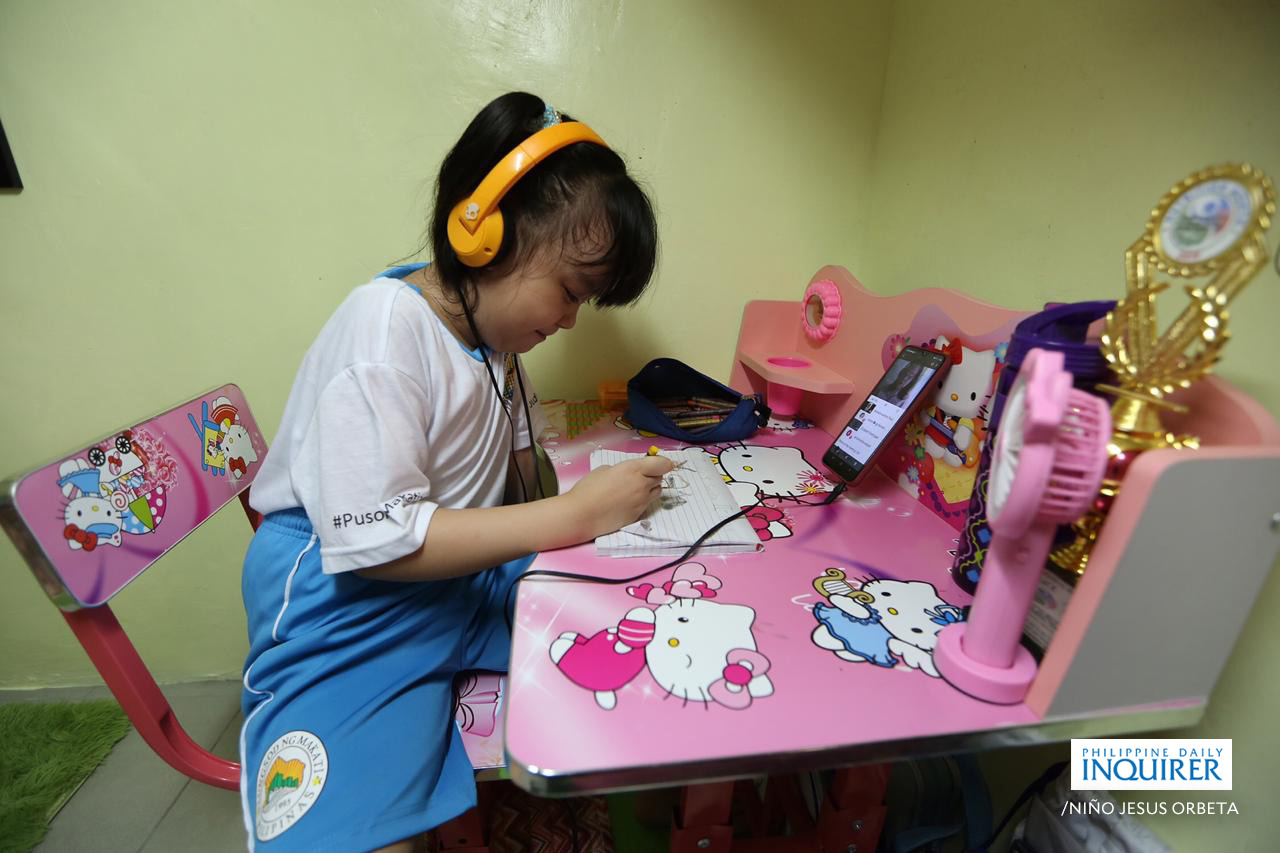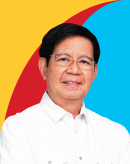Robredo spox: Identify, address gaps quickly in transition to blended learning

Grade 2 pupil Danielle B. Santos prepares for her first day of classes in their home in Barangay Tejeros, Makati City on Monday, October 5, 2020. She is among the 22.5 million students in public schools in the country who finally resumed their studies this October through distance/blended learning, which is being implemented on a nationwide scale for the first time due to the Covid19 pandemic, using online, printed modules, tv and radio method. Niño Jesus Orbeta/Philippine Daily Inquirer
MANILA, Philippines — As problems arise regarding blended learning three days after the opening of classes, the spokesman for Vice President Leni Robredo on Thursday said it is important to quickly identify and address gaps that come with the transition.
In a statement, Robredo’s spokesman Barry Gutierrez said the Office of the Vice President recognizes that there are “a number of challenges” that have emerged and will continue to emerge as the country shifts to a different kind of learning due to the COVID-19 pandemic.
“While there will be problems that will arise as with any transition, what is important is that we all work together to identify gaps quickly and to address them as best as we can,” Gutierrez said.
As classes officially opened on Monday, Oct. 5, it was reported that some students had experienced a hard time with the modules provided by the Department of Education (DepEd).
In an Inquirer report, one man had a hard time assisting his Grade 4 cousin in answering questions in the latter’s English subject. Because of this, the boy’s parents later resorted to answering the question for him just so the boy could meet the deadline.
Aside from this, the DepEd also previously apologized for an error for a math lesson that was aired over DepEd TV.
DepEd Undersecretary Alain Pascua, in a statement on Wednesday, said that DepEd TV Episode 56 carried a solution error in a math equation 2x = 0, in which “0” was used as the divisor to get the value of “x” instead of “2.”
This error was first pointed out by a netizen on Facebook, and her post later became viral.
Gutierrez, meanwhile, said that Robredo has communicated with the DepEd earlier so she could make suggestions, as well as to “convey her willingness to assist in any way.”
In her own effort, Robredo previously launched “Bayanihan e-SKWELA,” which is an online video series that could help educators and parents in the shift to distance learning.
Another component of the OVP’s project, Gutierrez added is “[providing] electronic gadgets for school use to children who have none.”































